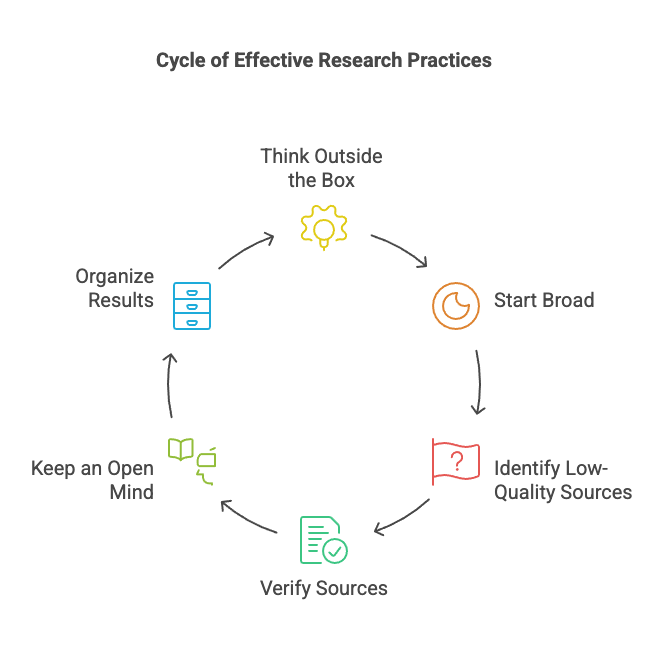Quick question: what skill is the most crucial indicator of success in search engine optimization?
You might think it’s critical thinking, that you need an analytical mind and the capacity to parse and understand search analytics. You may think communication and social skills are key, as a good SEO professional needs to be able to not only communicate the results of their work, but also use that work to generate compelling content. Alternatively, you might point to the fact that, as an inherently technical pursuit, a skilled SEO professional needs to be tech-savvy.
The above skills and characteristics are all important, but none of them constitute the true foundation of SEO. Even a powerful tool like SEMrush or AHrefs is functionally useless if you don’t know how to perform efficient, effective research. This is doubly true if you’re combining optimization with content creation.
Without research skills, you can’t:
- Brainstorm new topic ideas.
- Assess how your competitors are performing and what they’re doing.
- Stay aware of ongoing trends and news in your industry.
- Determine the most effective keywords and keyword permutations for a particular topic.
- Identify opportunities and content gaps.
- Gain an understanding of your audience.
The good news is
You can very easily learn to be a better researcher; indeed, it simply takes some practice and a bit of a mindset shift. To begin, the first piece of advice we’ll offer you is to learn to think outside the box.
For example, consider leveraging something like a mind map alongside your keyword research tools. This can help you identify keyword permutations you may have otherwise overlooked.
Beyond that, we’ll refer to an excellent article on research skills published by online learning agency MasterClass, which offers the following advice:

- When researching, always start broad before diving into specifics. There’s nothing wrong with using basic, generic search terms to help you narrow your scope. Research is a step-by-step process and should be treated as such.
- Train yourself to identify a low-quality source. Red flags include thin content, spammy website practices, poor spelling/grammar, absurd or false claims, and a lack of knowledge and/or authority.
- Always verify your sources. This is particularly important if you’re making factual claims in your writing.
- Keep an open mind and understand that you probably don’t know everything about a topic.
- Find a way to organize your research results that makes sense to you.
That’s basically all there is to it. Keep following the process above, and over time, you’ll start to find it easier and easier to carry out research. Eventually, it might even become something you do automatically, and you’ll have difficulty even remembering a time when you struggled to gather information.




